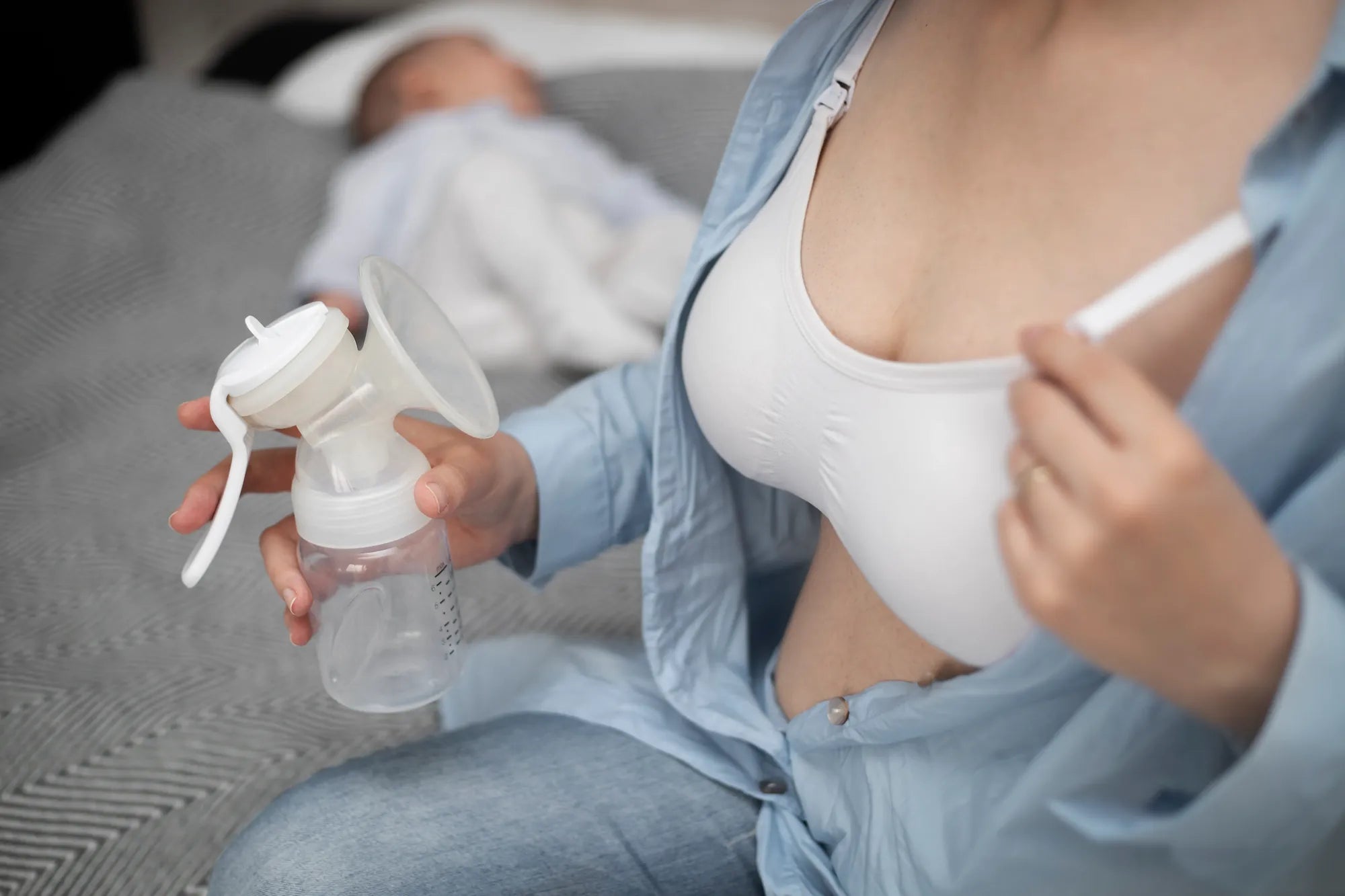Maison
Grossesse, allaitement et pompage : le guide ultime pour les mamans
Pouvez-vous tirer votre sein pendant la grossesse ? Explorer les faits

Pouvez-vous tirer votre sein pendant la grossesse ? Explorer les faits
La grossesse est une période de profonds bouleversements, tant physiques qu'émotionnels. Alors que votre corps se prépare à accueillir une nouvelle vie, vous vous posez peut-être des questions sur l'allaitement, notamment sur la possibilité et l'opportunité de tirer votre lait pendant la grossesse. Cet article explore les faits, les idées reçues et les avis d'experts sur ce sujet afin de vous aider à prendre des décisions éclairées.
Comprendre les changements mammaires pendant la grossesse
Pendant la grossesse, votre corps subit d'importants changements hormonaux qui préparent vos seins à la lactation. Les glandes mammaires commencent à produire du colostrum, le premier lait riche en nutriments, dès le deuxième trimestre. Ce processus naturel soulève des questions quant à l'intérêt et la nécessité de tirer son lait pendant la grossesse.
Est-il sans danger de tirer son lait pendant la grossesse ?
L'innocuité du tirage de lait pendant la grossesse dépend de plusieurs facteurs, notamment votre état de santé, le stade de votre grossesse et l'avis de votre médecin. Dans la plupart des cas, le tirage de lait pendant la grossesse est considéré comme sûr s'il est effectué correctement et avec modération. Toutefois, il est essentiel de consulter votre professionnel de santé avant de commencer.
Avantages potentiels de l'allaitement au tire-lait pendant la grossesse
Tirer son lait pendant la grossesse peut présenter certains avantages. Par exemple, cela peut stimuler la production de lait et faciliter l'allaitement après l'accouchement. De plus, la collecte du colostrum peut être bénéfique pour les mères qui souhaitent le conserver pour les premiers jours de leur nouveau-né.
Risques et considérations
Bien que l'utilisation d'un tire-lait pendant la grossesse soit généralement sans danger, certains risques sont à prendre en compte. Une stimulation excessive des seins peut entraîner des contractions, ce qui peut augmenter le risque d'accouchement prématuré. Il est essentiel d'être attentive aux réactions de votre corps et d'arrêter immédiatement l'utilisation du tire-lait en cas de gêne ou de symptômes inhabituels.
Conseils d'experts sur l'allaitement au tire-lait pendant la grossesse
Les professionnels de santé insistent sur l'importance de la modération et de la prudence lors de l'utilisation d'un tire-lait pendant la grossesse. Ils recommandent de commencer seulement après le premier trimestre et d'éviter les tirages excessifs afin de minimiser les risques. Suivez toujours les conseils de votre médecin pour assurer la sécurité de votre bébé et la vôtre.
Alternatives à l'allaitement maternel pendant la grossesse
Si vous avez des doutes concernant l'utilisation d'un tire-lait pendant la grossesse, il existe d'autres façons de vous préparer à l'allaitement. Il s'agit notamment de participer à des cours de lactation, de pratiquer les bonnes techniques d'allaitement et d'adopter une alimentation saine favorisant la production de lait.
Préparation à l'allaitement post-partum
Que vous choisissiez ou non de tirer votre lait pendant votre grossesse, il est essentiel de bien vous préparer à l'allaitement après l'accouchement. Informez-vous sur les techniques d'allaitement, entourez-vous de soutien et aménagez un environnement confortable pour allaiter afin de faciliter la transition après la naissance.
Mythes courants concernant l'utilisation d'un tire-lait pendant la grossesse
Il existe plusieurs idées reçues concernant l'utilisation du tire-lait pendant la grossesse, notamment la croyance qu'il peut déclencher l'accouchement ou diminuer la production de lait. Il est important de distinguer le vrai du faux et de se fier à des sources fiables et à l'avis de professionnels de la santé pour prendre des décisions éclairées.
Quand consulter un médecin
Si vous ressentez des symptômes inhabituels, comme des douleurs, des saignements ou des contractions pendant l'utilisation d'un tire-lait durant votre grossesse, consultez immédiatement un médecin. Il pourra évaluer votre état et vous donner les conseils appropriés pour garantir votre sécurité et votre bien-être.
Tirer son lait pendant la grossesse est une décision personnelle qui nécessite une réflexion approfondie et l'avis d'un professionnel de santé. En comprenant les avantages, les risques et les alternatives, vous pourrez faire des choix éclairés qui favoriseront votre santé et le développement de votre bébé. N'oubliez pas que chaque grossesse est unique ; privilégiez donc votre bien-être et consultez votre médecin pour obtenir des recommandations personnalisées.
Partager


